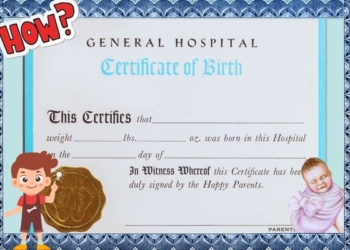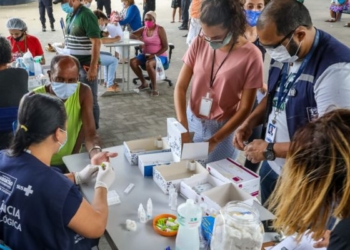A more accurate & objective definition of the concept of teaching is the overall concerted sharing of detailed knowledge & extensive experience that is usually organized within a particular discipline. Teaching is a stimulus that a teacher imbibes in a student for bringing in intellectual and psychological growth of a student.
How is the concept of teaching related to self-learning?
The process of learning independently can indeed be challenging. This is true for the most motivated as well as the brightest students. The processes involved in the concept of teaching is making the students understand the concerned subject thoroughly. The concept of teaching very clearly outlines the major components of the key stages of self-learning. The keys stages here are the readiness to learn, clearly setting up the learning goals, engagement in the core learning process and finally evaluating the process of learning.
Step 1: Assessing the readiness to learn
The students across various disciplines require different skills & attitudes towards effective learning for successful independent study. This particular step majorly involves students to conduct a self-evaluation. The self-evaluation parameters are their present situation, family situation, study habits, existing support network both at home & school. This also involves the proper evaluation of the past experiences with their initiative of self-learning. The major signs of readiness for self-learning include being organised, autonomous, great communicator, self-disciplined and have the ability to accept constructive feedback. One should also be able to engage in self-reflection & self-evaluation. The right and contemporary concept of teaching facilitate the students to develop the readiness of self-learning.
Step 2: Setting learning goals
The proper communication of the various learning goals between the teacher and student is critical. The teaching nature plays a pivotal role in the setting of learning goals for the students. Another critical factor is the proper understanding of the learning goals between the teacher and student. The learning contracts which is one of the major components of the modern concept of teaching include the following:
- The distinct goals for a particular study unit
- Proper structure & sequence of the activities
- Major timeline for the completion of the targeted activities
- Necessary details about the grading procedures
- Evaluation & feedback once every goal is completed
- Plan of one-to-one meeting with the teacher
- Proper agreement of the unit policies, just like the policy applicable on late assignments
Once the student creates the contract by taking up the initiative of self-learning, the advising teacher should assess this specific teaching-learning process to the student. There can be a determination on the feasibility of the learning contract as well.
Step 3: Engaging in the learning process
The students who have taken the initiative of self-learning as according to the modern concept of teaching should consider necessarily answering the following questions for themselves:
- What are my requirements for the instructional teaching-learning process?
- Who was my favourite teacher and why?
- What did your favourite teacher do differently from other teachers?
Students should reflect on all the above questions throughout the entire phase of their self-learning and the teaching nature of the guiding teachers should also be perfect at the same time.
The students also necessarily require to understand their studying approach. The student’s approach would be any of the following:
- A deep approach is one that involves a studying methodology about a major transformation & is also absolutely apt for self-directed learning. The approach is all about a thorough understanding of the ideas all by yourself with minimal guidance from the teacher. Then that newly acquired knowledge is to be applied to certain new situations & using novel examples in order to explain learning or concept more than what is required for the unit completion.
- A surface approach involves reproduction and copes with unit requirements & selective learning only what is required for completion of a unit. The student can also tend to regurgitate certain explanations & examples which are used in the readings.
- A strategic approach involves achieving the target of the highest grads. This complete learning approach focuses on passing exams, memorizing key facts and also to spend time in practicing the papers of the previous exams.
The earlier academic work may have encouraged a strategic or surface approach to study. These specific approaches will indeed not be sufficient for self-learning successfully. Self-learning requires a deep approach where the students necessarily need to understand the ideas and able to fruitfully apply the knowledge to certain new situations. Students need to generate their own connections & be their own motivators.
Step 4: Evaluate the entire learning
If the students want to be successful in their initiative of self-learning, they must necessarily be able to engage in self-reflection as well as self-evaluation of all their set learning goals. The students should self-evaluate their progress and at the same time, the guiding teachers should evaluate the students’ progress. In order to properly support the student’s self-evaluation process, they should:
- Frequently consult their guiding teacher
- Seek the feedback of their teacher/mentor
- Engage in reflecting their achievements
Responsibilities involved in the four-step procedure
A successful endeavour of self-learning requires to fulfill certain specific roles or responsibilities of both the advising teacher and the students. The following throws light on the most important roles. This is useful for both the advising teacher as well as the students to review these periodically & communicate if all the responsibilities are rightly fulfilled or not.
Students’ roles
- Self-assessing their readiness for learning
- Defining their learning goals and also developing a perfect learning contract
- Monitoring their learning process specifically
- Taking the right initiative for all the major stages of the learning procedure and always remain self-motivated
- Re-evaluating & altering the goals as per requirement
- Consulting with your advising instructor
Teacher’s roles
- Building a co-operative learning environment by practising an effective teaching-learning process
- Helping in motivating and directing the students’ learning experience
- Facilitating students in their learning initiatives
- Serving more as an advisor rather than a conventional instructor
- Always be available for consultations to their students







